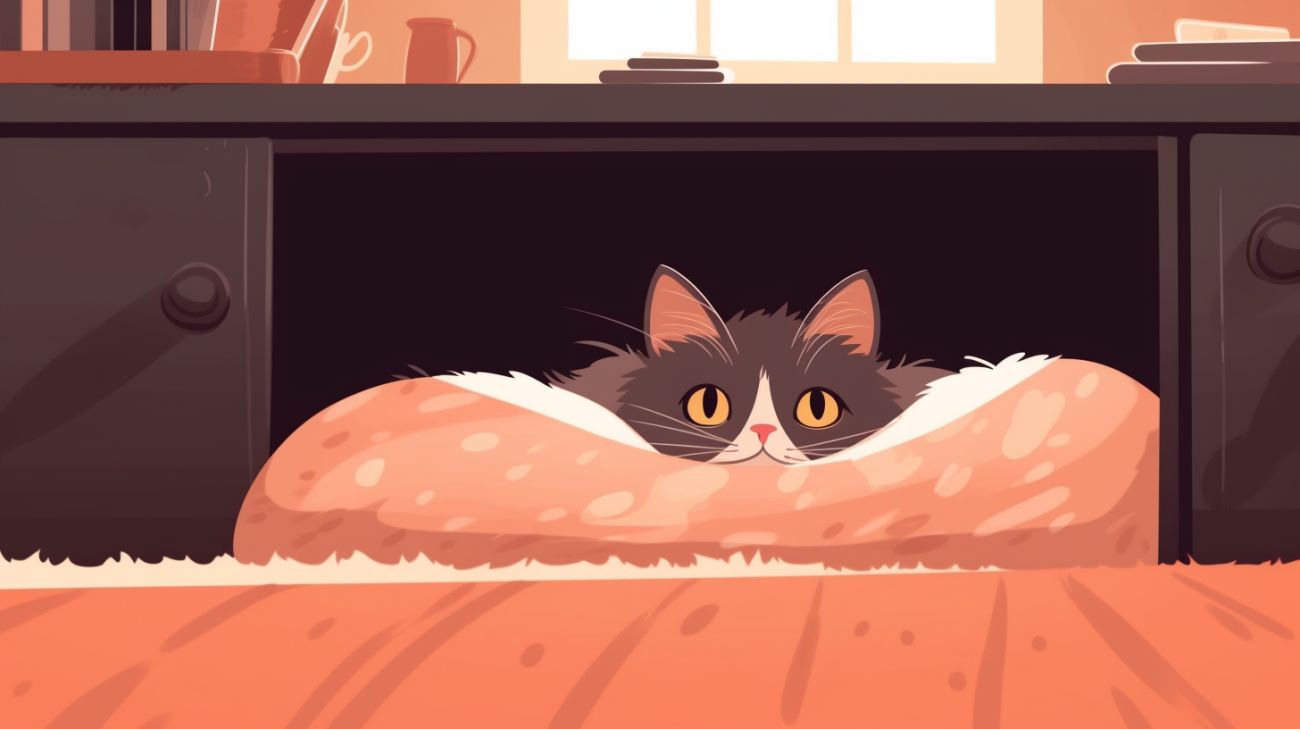Key takeaways
Sometimes, our kitties can be quieter than usual. Often, this isn't anything to worry about, but on rare occasions, it can indicate a serious health problem.
We're exploring the top 3 reasons why your cat has lost their voice so you can get them the care they need.
We'll also offer our top tips on how to care for a sick kitty so you can be the best pet parent possible.
Quick Navigation
3 Reasons why your cat can't meow
1. Upper respiratory infections
Feline Herpes Virus: This viral illness causes nasal discharge, coughing, sneezing, sore throat, and fever. 97% of cats are exposed to this virus in their lifetime, so it's super common. Depending on the severity of your kitty's case, they may need antibiotics, but in most cases, they just need lots of rest and care! (source)
Feline Calicivirus: This is another common infection that can inflame and irritate all areas of your cat's upper respiratory tract, causing symptoms like discharge and swelling. However, when left untreated, it can have the potential to cause pneumonia as it spreads to the lungs. This is why it's essential to get your cat checked up if they don't start to get better with care and hydration.
Fungal infections: This is a more serious condition that should be treated as soon as you suspect it. Fungal infections may start in the nose and throat but can quickly spread throughout the body, like vital organs or the central nervous system. It's common for your cat's vocalization to be altered and for painful swelling to occur.

2. Injury
Purring: It may seem counterintuitive because we associate purring with a happy kitty, but it's actually a form of self healing. So, if they're experiencing pain, they will try to comfort themselves by purring.
Excessive licking: Cats will instinctually lick the area that is causing them pain in an attempt to soothe it.
Hiding and not eating: Not eating is a common symptom of pain, especially in a cat's throat. Alongside this, hiding and isolating themselves in an instinctual response when they recognize that they are in a vulnerable position.

Whether they've fallen from a height, become trapped or stuck, or got into a fight with some other neighborhood cats, it's possible they've injured their throat.
3. Object lodged in their throat
Pawing at their mouth
Gagging
Drooling
Coughing
Difficulty swallowing or breathing

How to care for your cat when they're sick
Give them wet food

If your kitty has a cat cold or is showing cat laryngitis symptoms, it's important you give them the care they need. After all, our furry friends are always there to comfort us when we're ill!
Keep them company
Sitting with them and talking softly with them
Leave tasty treats and strong-smelling food near them
Keep the house nice and quiet and avoid visitors
Take them to the vet

FAQs
What should I do if my cat lost her voice?
If your cat suddenly loses their voice, you should get professional advice. While normally this means your cat may have a bit of a cold, sometimes it can indicate a more serious underlying health condition, so it's always important to get them checked.
How long will a cat lose its voice?
Most cats will only lose their voice for a few days at a time. Similarly to humans, when cats get a cold or infection, they can lose their voice. But as soon as they recover, they should be able to meow again!
Why does my cat meow but no sound comes out?
If your cat meows but no sound comes out, this means they have lost their voice. This can indicate that they have a cold or an infection. Keep an eye on them and if it doesn't improve, get professional advice.
Why is my cat's meow weak and raspy?
If your cat's meow is weak and raspy, this probably means they have a bit of a cold! However, it can sometimes indicate something more serious, like an injury to their throat or something blocking their throat. Observe them and seek professional advice if you're worried.
Is cat laryngitis serious?
Cat laryngitis is often not serious. Most of the time, it is caused by a cold or infection that usually goes away on its own. However, it can indicate more serious health conditions, so observe them for a couple of days, and if they don't improve, seek professional advice.
Should I be worried if my cat lost its voice?
If your cat lost their voice, it's probably nothing to worry about. It's usually an indication that they are suffering from a cold or mild infection. However, sometimes it can be caused by more serious health conditions or injuries, so if they don't improve, contact a vet for advice.



